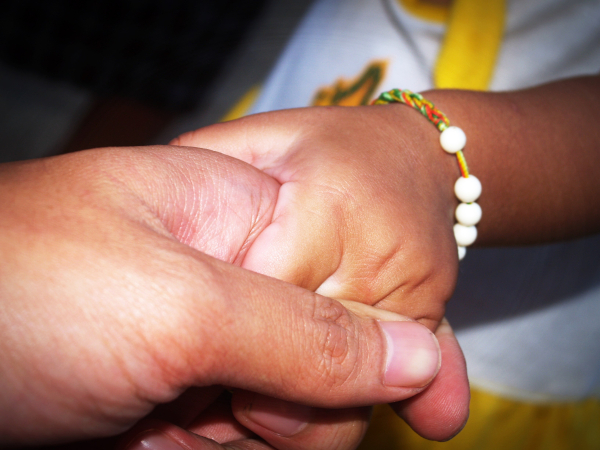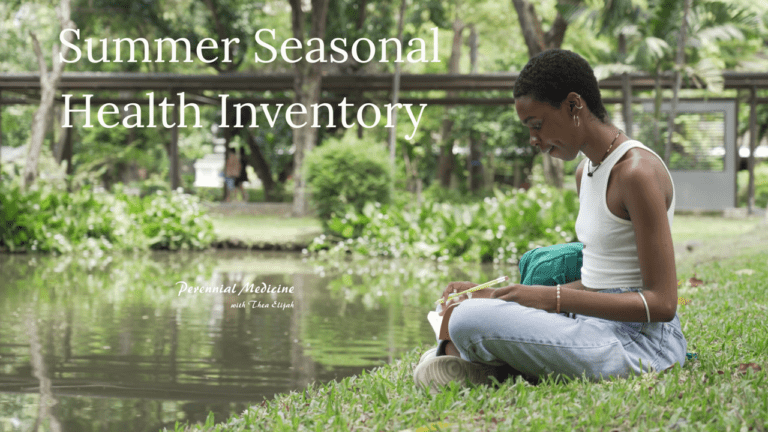The Adab, or the Deep Politeness

The Adab, or the Deep Politeness
At the bottom of my blog, over the months I’ve mentioned my Perennial Medicine listserv as a better place to continue discussions than down in the comments section below. The comments section is nice for short little comments, but it’s not really a discussion forum.
Instead, I issue a general invitation to you all to join the Perennial Medicine listserv. Having issued that invitation, I would like to share about the culture of that community—and by extension, the culture of the Me-First School of Global Healing.
Sufism is an influence that has shaped my outlook on almost everything. One of the Sufi cultural influences that I most welcome in my community life is the practice of the adab, or Deep Politeness. Deep Politeness, or adab, is not phony, and not mincing words, and not hiding how you feel or what you think. That would be false and creates separation. Deep Politeness, or adab, is a way of bringing hearts together in the truth.
What is the light of the Heart?
One way of speaking about this unspeakable is to say, where love and truth meet—where there is no distinction between the two—that is the Heart. This place of light that is both love and truth is not a result of putting love and truth together. It is about the place before they divided—because the real love, the REAL LOVE, is truthful. Completely. Of course. And the real truth, the REAL TRUTH, is loving.
Of course.
Some of us forget that the real truth is loving. Some of us forget that the real love is truthful.
I call us “the children of the love” and “the children of the truth.”
It seems to me that what happens to just about everyone I have met is that, at a very early age, love and truth appear to divide. It appears in our life as though we must choose one or the other; that we cannot have both. “If I tell the truth, I will not be loved. I can only be loved if I don’t tell the truth. I can show who I am and what I really think and feel and see, or I can be fully accepted. Not both.” This is a terrible choice—and my sense is that most people have made it, long long ago as children.
 There are those who say, “OK, love is what really matters—love is important, more important than anything else. I am willing to sacrifice truth and truthfulness and realness if it is a threat to what I know as love.” For these people, God is love. That is wonderful, but they also start to forget who the heck they actually are, or what anything really is, and it all becomes relative and kind of stagnant. It’s like vegetables in de-mineralized soil, mushy and tasteless. There’s no rigor in it and ultimately little lasting value.
There are those who say, “OK, love is what really matters—love is important, more important than anything else. I am willing to sacrifice truth and truthfulness and realness if it is a threat to what I know as love.” For these people, God is love. That is wonderful, but they also start to forget who the heck they actually are, or what anything really is, and it all becomes relative and kind of stagnant. It’s like vegetables in de-mineralized soil, mushy and tasteless. There’s no rigor in it and ultimately little lasting value.
 Then there are those who say, “I’m sticking with the truth, even if that means that I walk alone.” It is a brave and terrible choice, and those of us who walk this way can get very self-righteous and piercing. Our God is a fierce and rigorous god, the God of truth-but-not-love. Truth without love is not healing. Truth without love is not holy. Truth without love is a weapon that can break hearts and destroy lives. There is no merit in it, actually, for those who call themselves healers—no more than there is merit in love that is not truthful.
Then there are those who say, “I’m sticking with the truth, even if that means that I walk alone.” It is a brave and terrible choice, and those of us who walk this way can get very self-righteous and piercing. Our God is a fierce and rigorous god, the God of truth-but-not-love. Truth without love is not healing. Truth without love is not holy. Truth without love is a weapon that can break hearts and destroy lives. There is no merit in it, actually, for those who call themselves healers—no more than there is merit in love that is not truthful.
Adab, or the Deep Politeness, is truth and love. It means speaking from the heart—which is a place of void filled with light in each of us, deeper than personal emotion, aware of personal emotion but not identified with it. It is a place of knowing-union with all other light, including the light within the person to whom we are speaking.
 I’ve had some politically-charged moments of wanting to rip people’s throats out—and what saves me is looking at them and remembering that there is sanctity in them, somewhere, even if I personally do not see it in evidence right now. Out of respect for the sanctity within this person, I may let them know very clearly that their behavior is completely unacceptable, but it is my job—my obligation as a polite person—to deliver this message, no matter how severe, in such a way that it is clear that I am delivering it out of respect and love for the sanctity within them, which is a sanctity that I share. Everyone does.
I’ve had some politically-charged moments of wanting to rip people’s throats out—and what saves me is looking at them and remembering that there is sanctity in them, somewhere, even if I personally do not see it in evidence right now. Out of respect for the sanctity within this person, I may let them know very clearly that their behavior is completely unacceptable, but it is my job—my obligation as a polite person—to deliver this message, no matter how severe, in such a way that it is clear that I am delivering it out of respect and love for the sanctity within them, which is a sanctity that I share. Everyone does.
In this context, anger is expressed differently. It is still anger. But it becomes polite. A mutual recognition of God is within it. Or mutual recognition of the light of common Utmost Source, if you prefer. Out of love and respect, if you are acting like a total moron, of course, I will bring it to your attention—in a loving way, and love is not always mushy. But it does convey I-am-on-your-side. Not necessarily your good side. But I am right down here in the mud with you, not above you in judgment.
 Just so with criticism—polite criticism does not mince words but chooses them so that they can be presented as a gift, out of respect for the other person’s journey of excellence.
Just so with criticism—polite criticism does not mince words but chooses them so that they can be presented as a gift, out of respect for the other person’s journey of excellence.
Nobody needs to be perfect at this—we can always critique each other’s criticism, out of respect for everybody’s desire to be more excellent at delivering it—because what could be more wonderful than feeling free to speak truthfully, in a loving context?
We are all responsible for creating this if we want it. It’s all about practice, and remembering that if practice makes perfect, it won’t be any time soon—don’t hold your breath—but clearly practice makes better. I can live with that.
This diatribe all came out of the vulnerability of an online community project of creating a list of 5 element songs, and the fear of others saying, “You think THAT SONG is Metal? What a DORK! Can you BELIEVE she thought that song was Metal?”
 Duh, uh, in this case, let’s just say that for the speaker, a valuable opportunity for practicing adab has been lost. What a pity, yes for the community but more so for the speaker. In this heart, compassion has been lost, and so too the truth has been lost. This heart is not in a state of true knowing. It’s not a worthwhile or discerning state; it is a judging state. Instead, with loving compassion, perhaps a valuable insight could have been offered to the community. Truth is welcome—loving truth. “Oh, you thought that song was METAL? I totally don’t get it. I’d have said WOOD, no question. What do you sense as Metal here? If you want to know, I’ll tell you what I sense as WOOD.”
Duh, uh, in this case, let’s just say that for the speaker, a valuable opportunity for practicing adab has been lost. What a pity, yes for the community but more so for the speaker. In this heart, compassion has been lost, and so too the truth has been lost. This heart is not in a state of true knowing. It’s not a worthwhile or discerning state; it is a judging state. Instead, with loving compassion, perhaps a valuable insight could have been offered to the community. Truth is welcome—loving truth. “Oh, you thought that song was METAL? I totally don’t get it. I’d have said WOOD, no question. What do you sense as Metal here? If you want to know, I’ll tell you what I sense as WOOD.”
 A decent discussion could ensue here, and it could even end with total disagreement—but polite disagreement. We might even find, over time, that there are people in our community with whom we easily share similar perceptions and others with whom we find a fairly consistent disagreement. Great. Good to recognize, good to know. We might think some people are dead wrong and don’t know what they are talking about. Fine. We may be right about that. But can we be polite about it—take responsibility for conveying our respect for the sanctity of the speaker, at the same time as our sense that what they are saying is pure bosh? Now that is a practice I can get really really excited about.
A decent discussion could ensue here, and it could even end with total disagreement—but polite disagreement. We might even find, over time, that there are people in our community with whom we easily share similar perceptions and others with whom we find a fairly consistent disagreement. Great. Good to recognize, good to know. We might think some people are dead wrong and don’t know what they are talking about. Fine. We may be right about that. But can we be polite about it—take responsibility for conveying our respect for the sanctity of the speaker, at the same time as our sense that what they are saying is pure bosh? Now that is a practice I can get really really excited about.
Want to join the discussion? Find the Perennial Medicine listserv here.






